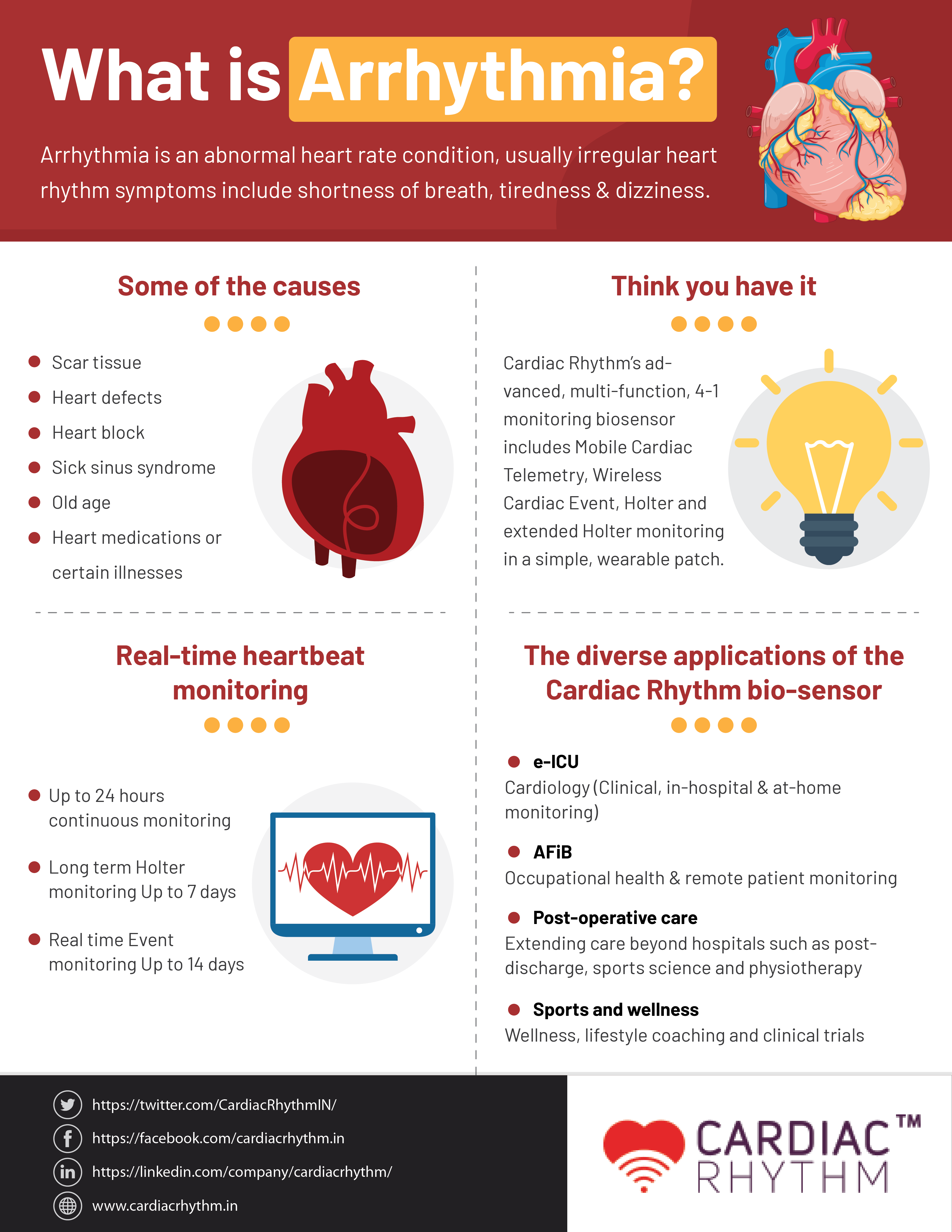

call us:1800 5999 5999
+91 72 0005 0005
What is Arrhythmia?
Posted on November 18, 2019
An arrhythmia is a problem with the rate or rhythm of the heartbeat. During an arrhythmia, the heart can beat too fast, too slowly, or with an irregular rhythm. When a heart beats too fast, the condition is called tachycardia. When a heart beats too slowly, the condition is called bradycardia.
Arrhythmia is caused by changes in heart tissue and activity or in the electrical signals that control your heartbeat. These changes can be caused by damage from disease, injury, or genetics. Often there are no symptoms, but some people feel an irregular heartbeat. You may feel faint or dizzy or have difficulty breathing.

What is Arrhythmia?
Arrhythmia is an abnormal heart rate condition, usually, irregular heart rhythm symptoms include shortness of breath, tiredness & dizziness.
Some of the causes
- Scar tissue
- Heart defects
- Heart block
- Sick sinus syndrome
- Old age
- Heart medications or certain illnesses
Think you have it
Cardiac Rhythm’s advanced, multi-function, 4-1 monitoring biosensor includes Mobile Cardiac Telemetry, Wireless Cardiac Event, Holter and extended Holter monitoring in a simple, wearable patch.
Real-time heartbeat monitoring
- Up to 24 hours of continuous monitoring
- Long term Holter monitoring Up to 7 days
- Real-time Event monitoring Up to 14 days
The diverse applications of the Cardiac Rhythm bio-sensor
- e-ICU
Cardiology (Clinical, in-hospital & at-home monitoring)
- AFiB
Occupational health & remote patient monitoring
- Post-operative care
Extending care beyond hospitals such as post-discharge, sports science, and physiotherapy
- Sports and wellness
Wellness, lifestyle coaching, and clinical trials
Tags: arrhythmia, heart attack, heart disease